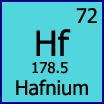 Devotees of the New Yorker will no doubt remember items that used to be short entries titled “There Will Always Be an England.” A typical item under that heading recounted humorous but true anecdotes of quaint English behavior. You know, the story of an eccentric don who wins the lottery and uses the proceeds to buy first-class plane tickets to Sardinia for two voles that he nursed back to health after they were run over by a lorry in Dorset.
Devotees of the New Yorker will no doubt remember items that used to be short entries titled “There Will Always Be an England.” A typical item under that heading recounted humorous but true anecdotes of quaint English behavior. You know, the story of an eccentric don who wins the lottery and uses the proceeds to buy first-class plane tickets to Sardinia for two voles that he nursed back to health after they were run over by a lorry in Dorset.
So I couldn’t help using the same title for the story of Avocado Research Chemicals Ltd of Heysham, Lancashire and its unfortunate and unlicensed export of two chemicals from the U.K. In July 2005, the company exported to Egypt without a license small quantities of 2-diisopropylaminoethyl chloride hydrochloride, a precursor to VX nerve gas, and hafnium, a component used in producing control rods for nuclear reactors. The company was fined £600 and ordered to pay £100 in costs, or just over $1400 in fines and costs. And, no, we aren’t missing several zeros in those figures. Those are the actual fines.
But it gets better. The illegal exports were discovered by the Department of Trade and Industry after it reviewed the company’s annual export report and noted that licenses had not been obtained for the exports in question. The company then made a voluntary disclosure of the unlicensed exports. Is that great or what? The agency can discover the violation but you can still make a voluntary disclosure. That’s better than getting two mulligans on the eighteenth hole. A subsequent internal audit disclosed that the exports were “a result of human error” – or, translated from the British, inadvertent.
Wait, there’s still more. A spokesman for the Revenue and Customs Prosecutions Office put on a very serious face and said this:
Today’s successful result shows how important it is for companies to make sure that correct exporting procedures are in place. ARC Ltd did the right thing once they noticed their mistake and contacted the authorities. But other companies should note that, even in a case where small quantities and genuine human error are involved, some action must be taken. The unlicensed export of potentially lethal substances is too serious to be ignored at any level.
Come on, he’s kidding isn’t he? Something can be “too serious to be ignored at any level” and the appropriate result is a $1400 fine for a company that “voluntarily” discloses the export after it got caught? The great sucking noise you are hearing is the sound of U.S exporters looking for office space in Lancashire.
So, to paraphrase another famous expression, next time your company is getting, er, worked over for an export violation, just lie back and think of England.
 Permalink
Permalink
Copyright © 2007 Clif Burns. All Rights Reserved.
(No republication, syndication or use permitted without my consent.)

 Posted by
Posted by  Category:
Category: 

